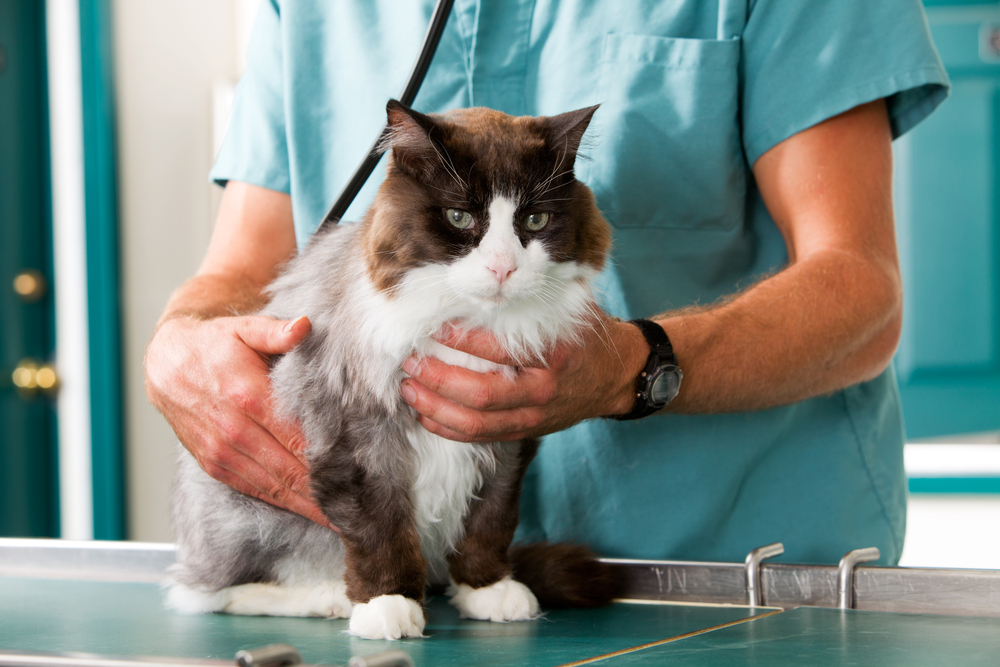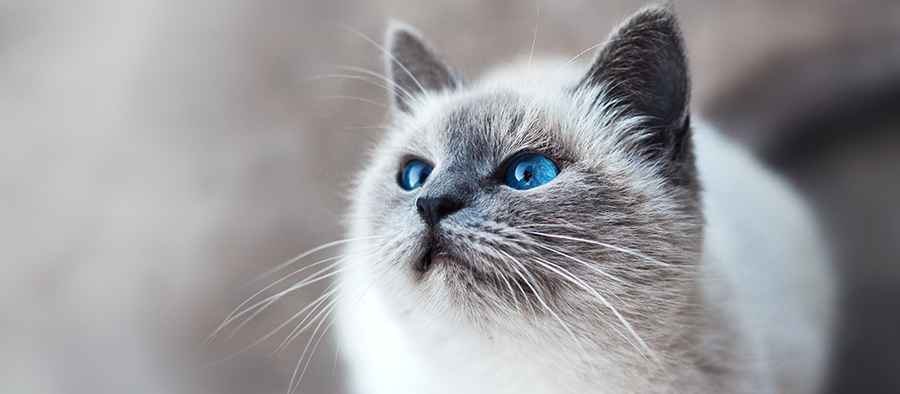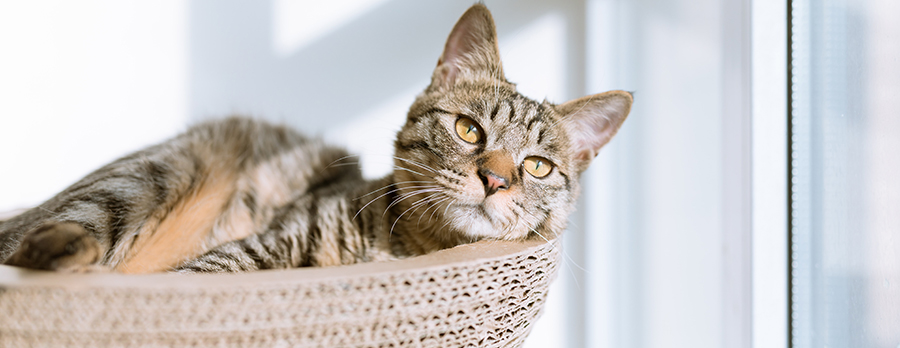
Senior cats have different care needs than a kitten, from nutrition to behavior. This means different needs from visits to the vet. In March of 2021, the American Animal Hospital Association (AAHA) and American Association of Feline Practitioners (AAFP) released new guidelines for cat owners regarding how cat owners should care for their cats at each stage of their lives. These new guidelines are an update from the previous guidelines, which were released in 2010.
What Are the Life Stages of a Cat?
The AAHA and AAFP divided a cat’s life into five distinct stages:
- Kitten: Birth to 1 year old
- Young adult cat: 1 year old to 6 years old
- Mature adult cat: 7 years old to 10 years old
- Senior cat: 10 years old and older
- End of life: Can be any age
How Often Should You Take Your Cat to the Vet?
The AAHA and AAFP recommended that cat owners take their cats to the vet for normal check-ups at least once a year as a kitten, young adult, and mature adult cat. Kittens will, of course, have multiple vet visits in their first year to account for a full set of vaccinations and being spayed or neutered. Once a cat is old enough to be considered senior, check-ups at the vet should increase to once every six months. If a cat is at the end of its life or has a health condition, your vet may recommend more frequent check-ups.
What Should Cat Owners Discuss with Their Veterinarians?
The AAHA and AAFP guidelines also outlined a variety of things that cat owners should monitor in their cats at home to discuss with their veterinarian during visits. What cat owners should be mindful of changes depending on the cat’s stage of life.
The guidelines divide these things into several categories:
- Medical history
- Nutrition and weight management
- Behavior and environment
- Litter box
- Oral health
- Parasite control
Kittens

Medical History
When your cat is a kitten, you should discuss with your vet what health conditions are common for that breed. You should also talk about any genetic conditions your cat may have and any concerns that you have as the cat’s owner.
Nutrition and Weight Management
Discuss with your vet what food you are feeding your kitten, how much food, how often you feed your kitten, and whether you should use feeding toys and puzzles.
Behavior and Environment
When your cat is a kitten, it’s important to start training your cat in the right behaviors early on. This means making sure your kitten is comfortable in a carrier and is socialized well with other people and other cats. This is also an important time for cat owners to learn what they need to know to properly care for their pets, including how to make sure the cat is properly groomed, its nails are trimmed, and more.
Litter Box
Talk to your vet about the number and placement of litter boxes, type of litter, and your kitten’s toileting habits.
Oral Health
While your cat is still a kitten, you should talk with your vet about how to get your kitten comfortable with their mouth being handled. This includes opening their mouth and brushing or wiping their teeth.
Young Adult Cats

Medical History
When your cat is a young adult, you should monitor for the following at home and discuss them with your vet:
- Vomiting
- Diarrhea
- Hairballs
- Grooming habits
- Behavior changes
Nutrition and Weight Management
When your cat is a young adult, you should discuss with your vet any weight gain your cat experiences. You should also talk about your cat’s play habits, what exercise your cat gets, and what the risks are for obesity.
Behavior and Environment
When your cat is a young adult, talk to your vet about any changes you notice in the cat’s behavior, especially regarding interactions between your cat and other cats or with people. You should also discuss how to make sure your cat is comfortable with being examined at the vet.
Litter Box
Discuss how your cat may need a different litter box as it grows.
Oral Health
Talk to your vet about foods that can help to keep your young adult cat’s teeth healthy.
Mature Adult Cats and Senior Cats

Medical History
Starting when your cat is a mature adult and continuing to when your cat is a senior cat, you should monitor for changes in the following and discuss them with your vet:
- Hydration
- Vomiting
- Appetite
- Mobility
- Vision
- Activity at night
- Diarrhea
- Vocalization
- Grooming habits
- Litter box habits
Nutrition and Weight Management
You should talk with your vet about any changes in your cat’s weight, whether it’s a gain or loss. You should also discuss what kind of food you’re feeding your cat so that your vet can determine whether its nutritional needs are being met because senior cats have different nutritional needs as they age. If your cat is overweight, ask your vet about prescription diet food.
Behavior and Environment
As cats age, they become less mobile. Talk to your vet about your cat’s environment so that your vet can advise you on making sure it’s suitable to the needs of a senior cat.
Litter Box
Review the location of the litter box with your vet to make sure that it’s in a good location to accommodate a senior cat’s needs, such as by allowing the cat to avoid needing to climb stairs.
Oral Health
As your cat ages, talk to your vet about any changes in the appearance of your cat’s mouth or teeth. You should also talk to your vet if your cat is either not eating or not chewing.
All Life Stages
The guidelines also recommended that cat owners discuss the following with their vet at all ages of a cat’s life:
- How to make sure the cat is comfortable in a cat carrier
- Microchipping
- Understanding that scratching is normal
- How to take care of a cat’s claws
- What is normal cat behavior
- What changes in behavior are significant
- Signs of pain, illness, or stress
- Pet insurance and financial planning
- Scheduling regular check-ups
Litter Box
At any stage of your cat’s life, you may want to speak to your pet’s veterinarian about the number of litter boxes in your home and where you have placed them. Placement and number of litter boxes can be connected to other concerning behavior by your cat. The type of litter, cleaning habits, and stool appearance and size are other topics you may want to cover with your pet’s vet if you have concerns.
Parasite Control
Cats of all ages are at risk of developing parasites. You should talk with your vet about your cat’s risk of exposure and what preventative measures you can take. You should also discuss zoonotic diseases, which are diseases that can pass between animals and humans.
What May Require Extra Focus at the Vet?
Depending on your cat, there may be certain topics that you’ll want to spend extra time discussing with your pet’s vet.
Kittens
When your cat is a kitten, talk to your vet about your cat’s genetics, any infectious diseases your cat could be at risk for, and whether or not you should spay or neuter your cat.
Young Adult Cats
For young adult cats, you should talk with your cat’s veterinarian about their oral health and skin health. You should also review their heart and lung health at this life stage.
Mature Adult Cats and Senior Cats
Mature adult cats and senior cats will require the most extensive care. This will require extra focus in many areas of their well-being. For mature adult and senior cats, vet appointments may focus on everything from pain management to teeth health. Your vet will assess your cat’s abdomen, thyroid, heart, lungs, and kidney to determine all are functioning properly. Here’s a list of a few additional areas you should be focusing on once your cat enters their seventh year:
- Pain and arthritis management
- Muscle and bone assessments
- Oral health
- Eye health




